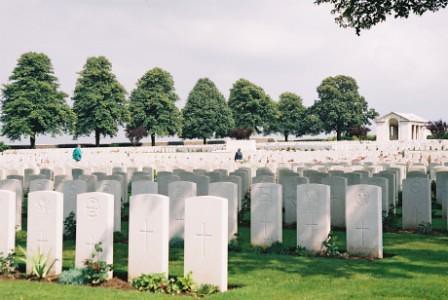 |
| This man shoots people for a living, he has a chance of dying doing it |
The problem with this is that, to me, all these figures do is prove how technologically superior and relatively well-equipped we are compared to the people we are fighting. In a recent article the total number of deaths in Afghanistan has reached 368 British soldiers. While the linked article is pretty much a eulogy for the son of the author, where the figure is used solely to bring up the other families who have lost sons and daughters, there are plenty which produce the figure as a shocking number. A figure which is meant to provoke the response of "oh my lord, that's a terrible number of people". The problem with this is that we have been in Afghanistan for ten years now, which makes that an average of around 37 deaths per year. Compare this with the epitome of senseless waste of life, the first day of the Somme, where we lost 19, 240 British soldiers in a single day. That means in ten years of fighting in Afghanistan we have lost 52 times less lives than in a single day of the Somme.
 |
| Probably more graves in this one site than were lost in the entire Aghan war so far. |
I suppose the argument goes that we have learnt from the two world wars about the tragedy of war and that even a few lost men provides more of an impact now that it did in 1914. However if that was the case, surely we should be as bothered about losses on all sides of the war, not just our own losses. If we really are 'better' and believe that the mere existence of war is a tragedy, then surely the losses of Aghanistan lives and the losses our allies have suffered are just as important as our own. Yet you barely see these figures published, especially not in the kind of stories where we mourn the loss of life of troops.
For the sake of balancing this, here are some figures from wiki (so probably not reliable, but should give a rough idea) of the losses that have been suffered. The overall friendly losses for the war have been 13, 107 ( 36 times the amount we have lost personally). The overall losses for the taliban and associated forces were 38,000+ , bringing the total loss of life for both sides to 51,107. The number of civilian casualties is estimated to be 14,000-34,000, bringing the total amount to 65,107-85,107. These are figures which should provoke the feeling of "my god, that's a lot of lives lost", especially considering the number of civilian casualties. Of course, compared to the first world war the amount seems trivial, with the total number of deaths from all sides in Afghanistan being less than just the UK's civilian deaths from the first world war (roughly 109,000).
Of course, using these figures just as figures is pointless and stupid, which is why every newspaper who has published the number of British deaths as shock figures should be ashamed of themselves. To group them together and use them as statistics is a disservice to them as individuals, and their family and friends should mourn them individually. However, the idea of using the figure to politicise their deaths is idiotic. The figures aren't shocking, the loss of a person who is your son or daughter is shocking. Wars cost lives, that's a simple fact. Keeping track of British losses like some kind of scorecard isn't the right way to go about it. You either think war is a senseless waste of life, and vilify it as a concept entirely, or you accept that while war is terrible it is necessary, in which case you have to accept that lives will be lost.
No comments:
Post a Comment